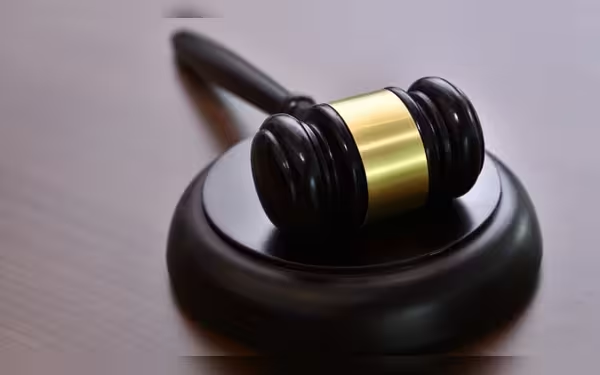Sunday, December 22, 2024 03:29 AM
Strengthened Safeguards Against Court Process Abuse in Singapore
- New legislation defines court process abuse as contempt.
- Minister highlights global trend of legal system misuse.
- Strong powers to dismiss frivolous claims established.
 Image Credits: channelnewsasia
Image Credits: channelnewsasiaSingapore's Law Ministry strengthens safeguards against court process abuse with new legislation, addressing concerns of misuse and ensuring justice.
The Ministry of Law in Singapore has recently emphasized the importance of safeguards against the abuse of court processes. This statement comes in light of new legislative amendments aimed at strengthening these protections. The amendments were passed by parliament on November 13 and are designed to address the growing concern of 'lawfare,' where individuals misuse the legal system for personal gain or to harass others.
One notable case that has drawn attention involves Iris Koh, a founder of an anti-vaccine group, and her husband, Raymond Ng. The Ministry of Law has refrained from commenting on the specifics of this case, citing its relation to potential legal proceedings. However, they have made it clear that the recent changes to the Administration of Justice (Protection) Act (AOJPA) will explicitly define the abuse of court processes as a form of contempt of court. This means that filing claims without merit, simply to annoy or pressure a defendant, will not be tolerated.
During discussions in parliament, Minister of State for Law Murali Pillai highlighted a troubling trend of such cases not only in Singapore but also in other countries. He pointed out that the serious consequences of abusing the legal system can undermine public trust in the justice system over time. Therefore, it is crucial to establish clear guidelines that label such actions as contempt of court.
The Ministry of Law has acknowledged that some individuals may attempt to exploit the legal system for ulterior motives. To combat this, the courts are equipped with strong powers to dismiss frivolous claims and prevent further legal actions from those who misuse the system. Additionally, individuals who obstruct the administration of justice may face investigations under the AOJPA.
The case involving Koh and Ng was brought to public attention by NUS Associate Professor Ben Leong, who mentioned facing a defamation suit. Although he did not name the individuals involved in his initial post, he later confirmed receiving letters of demand from both Koh and Ng. Koh has claimed that she is suing Leong for a comment he made on Facebook in November 2021, which she alleges accused her group of being a 'domestic terrorist organization.' Meanwhile, Ng has stated that he is suing Leong for labeling him a 'terrorist.'
This situation raises important questions about the balance between free speech and the right to protect one’s reputation. As the legal landscape evolves, it is essential for individuals to understand their rights and the potential consequences of their actions in the digital age. The Ministry of Law's commitment to monitoring developments and assessing the need for further reforms indicates a proactive approach to ensuring justice is served fairly and effectively.
The recent legislative amendments in Singapore serve as a reminder of the importance of maintaining integrity within the legal system. As society continues to navigate complex issues surrounding free speech and legal accountability, it is crucial for all parties involved to act responsibly and ethically. The ongoing dialogue about these matters will undoubtedly shape the future of legal practices in Singapore and beyond.













